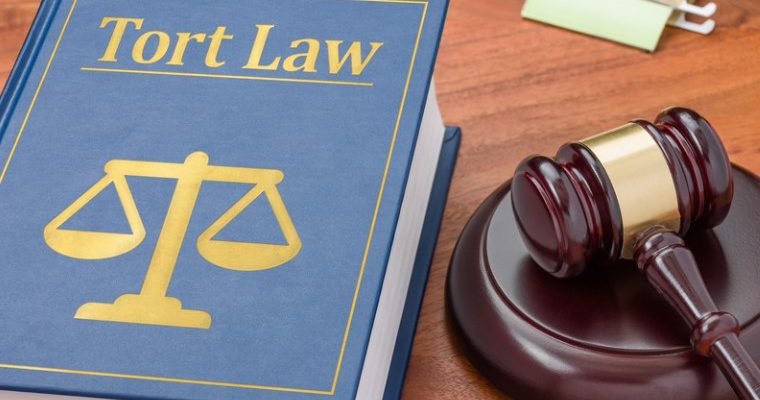
A Complete Guide on Tort Law in UK
Do you know what a tort is? In legal terms, it is a wrongful act that causes harm or injury to someone resulting in legal liability for the person who commits the tortious act. Tort law is one of the major areas of law in the UK, and everyone needs to understand it. In this blog, we will cover everything you need to know about Tort Law in the UK.
From the basics, such as what a tort is and what tort law is, to the different types of torts and their legal implications. We will discuss false imprisonment, private nuisance, and malicious prosecution. Additionally, we will cover strict and vicarious liability and the duties owed by individuals under the tort of negligence.
So, whether you are studying law or just curious to learn more, this blog is the ultimate guide to Tort Law in the UK.
Tort Meaning
A tort is a civil wrong for which courts impose liability and is defined as an act or omission that causes injury or harm to another. “Injury” refers to the invasion of any legal right in the context of torts, whereas “harm” refers to a loss or harm that a person suffers in reality. Torts law is a special legal category that deals with the injuries people usually suffer when wronged. Tort law generally has two main purposes: compensating individuals for their losses and deterring similar wrongful conduct in the future.
What is Tort Law?
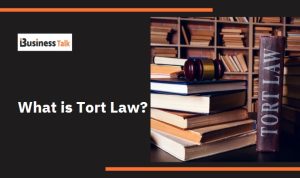
A tort is a civil wrong committed by the ‘tortfeasor,’ which causes loss or harm to another person. As a result, the tortfeasor is answerable to the victim. A tort is handled by the civil courts and is different from criminal law and contract law, which the criminal courts handle. Tort law is primarily concerned with the redressing wrongs and compensating individuals who have suffered harm due to another’s wrongful conduct.
A tort is a wrongful act or omission that causes harm to an individual or their property, resulting in legal liability. Tort law covers a wide range of civil suits, including but not limited to personal injury, negligence, and defamation. The plaintiff in a tort lawsuit seeks compensation from the defendant for damages incurred. Four elements must be established to file a successful tort lawsuit: duty, breach of duty, causation, and injury.
Tort law is a rule of law that is intended to protect and compensate people who the negligence or intentional acts of others have injured. It aims to provide justice, fairness, and accountability for those who have suffered harm due to someone else’s wrongful or direct discriminatory conduct.
What is a Primary Victim in Tort Law?
In tort law, the injured party who seeks compensation is called a primary victim. Tort law is a branch of civil law that deals with civil breaches resulting in legal action. The defendant commits the wrongful act, and the plaintiff is the party wronged in tort cases. To make a successful tort claim, causation must be established, which means the wrongful act was the direct cause of the plaintiff’s injury.
In addition, a breach of duty on the defendant’s part that directly resulted in injury to the plaintiff must also be established for the tort case to be successful. Understanding primary victims and other key aspects of tort law in the UK can help navigate legal situations involving civil disputes.
Who is an Occupier in Law of Tort?
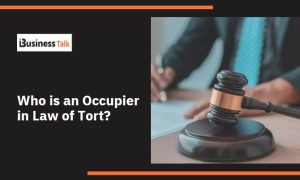
In the context of the law of tort, an ‘occupier’ refers to a person who has control over a particular property or premises. Under the law, an occupier can be sued for damages incurred due to their failure to ensure that the premises are free from hazards or unsafe conditions. In a lawsuit, an occupier can be held liable for any harm, injury or damage caused due to their failure to fulfil their duty of care towards visitors, tenants, or customers.
The purpose of tort law is to provide relief to victims who have suffered wrongfully and to enable them to recover damages, including medical expenses, lost income, and pain and suffering. In such cases, tort law requires those who have caused harm to others to compensate the victims.
What is Economic Loss in Tort Law?
Economic loss in Tort Law refers to the financial losses incurred by a plaintiff due to a wrongful act or violation of rights. To file a valid economic loss claim, the plaintiff must prove duty, breach of duty, causation, and injury. Tort law aims to compensate for proven harms, including loss of income, medical expenses, and pain and suffering.
However, it’s essential to note that tort law does not cover contractual disputes. In personal injury cases, where the defendant is liable for losses and injuries sustained, the plaintiff can also seek damages for economic loss. Thus, if there is a valid claim for economic loss, the plaintiff can recover both tangible and intangible damages to help them return to their original financial position before the wrongful act occurred.
What is Strict Liability in Law of Tort?
Tort law refers to a civil wrong or injury to another person or property for which the courts impose liability. Strict liability in tort law does not require proof of intent or negligence; instead, it is the imposition of liability on a party for inherently dangerous behavior. Examples of strict liabilities are owning wild animals or managing nuclear power plants.
Tort law covers most civil suits and compensates victims for all proved harms, including medical expenses, loss of income, and pain and suffering. The law fully compensates the victims, and those who harm others must pay them. If you’re looking to navigate the complex tort law system, it’s essential to understand the concept of strict liability and other aspects of this body of law.
What is Vicarious Liability in Tort Law?
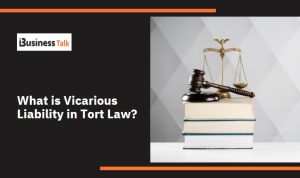
In tort law, vicarious liability is a concept where someone is held responsible for the actions of another. This means that an employer can be held responsible for any wrongdoing committed by their employees while on the job. Tort law aims to compensate someone who has suffered a loss or injury due to the actions of another person.
To successfully prove a tort case, the plaintiff must show that the defendant breached their duty of care, causing harm to the plaintiff. Tort lawsuits seek to offer relief to the injured party through compensation for the damages incurred. The defendant in a tort case is usually required to compensate the injured party for any losses they have suffered.
Understanding vicarious liability and other aspects of tort law is important in cases where someone has been wronged or injured.
Tort of Negligence
Tort law in the UK encompasses most civil suits, other than contractual disputes, and serves to provide compensation for any harm caused by wrongful acts. In tort cases, the plaintiff seeks compensation from the defendant for damages incurred due to a breach of duty resulting in injury.
Negligence is a tort where the defendant must act with care but breaches that duty and causes injury to the plaintiff. There are three main types of torts: intentional torts, negligence, and strict liability, each with its own set of elements under the law.
Tort law requires those who cause harm to others to compensate the victims, including for loss of income, medical expenses, and pain and suffering. In some of the cases, punitive damages may also be awarded. Thus, understanding tort law and its various aspects, including negligence, is important in navigating legal disputes in the UK.
Private Nuisance
In UK Tort Law, private nuisance refers to the unreasonable disturbance or interference with an individual’s enjoyment or use of their property. It is one of several areas of tort law, including defamation and invasion of privacy. The definition of a private nuisance may differ depending on the area and whether the activity is for the common good.
Property owners can sue for most acts that interfere with their use and enjoyment of their land. The law of tort is a legal wrong or an actionable civil wrong, which entitles the claimant to a legal remedy. So if you are a property owner and feel that someone’s activities are unreasonably affecting your enjoyment of your property, consider taking legal action.
Malicious Prosecution

In the UK, malicious prosecution falls under the umbrella of intentional torts. To have a successful case, the plaintiff must provide evidence of duty, breach of duty, causation, and injury. In addition, malicious prosecution requires proof of an intentional act which causes damages. Torts are wrongful actions that result in civil liability, and malicious prosecution is one of them.
The defendant in such a case is known as the tortfeasor, while the plaintiff is known as the victim or wronged party. If found liable, the plaintiff may seek compensation from the defendant. However, claimants must be prepared to face the legal challenges of such cases, including the burden of proof required to establish malicious prosecution.
In summary, malicious prosecution is a serious matter and requires careful consideration of the legal implications before pursuing a claim.
Duty of Care Negligence
The concept of “duty of care” plays a vital role in tort law in the UK, and the three-stage Caparo test establishes it. A successful tort case requires the plaintiff to prove that the defendant owed them a duty of care, breached that duty, caused harm to the plaintiff, and incurred damages.
Negligence actions in common law jurisdictions involve proving that the defendant breached a standard of care and that this caused the plaintiff’s damages. In tort law, cases are typically initiated by plaintiffs seeking compensation for harm caused by others. However, contract disputes are not typically classified as torts.
If a plaintiff is successful in a tort case, they may be awarded full compensation for past and future losses, medical expenses, pain and suffering, and punitive damages. However, it is important to note that tort law can be complex, and anyone involved in a potential tort case should seek the advice of a qualified legal professional.
Tort of Deceit
The tort of deceit is a type of tort covered under the UK’s tort law. In the UK, the law of tort aims to make individuals or small businesses liable for their wrongful behavior. Successful tort cases require a plaintiff to show that the defendant owed them a duty of care, breached the private company rules, and caused them injury or damage. Tort law can award damages for past and future income, medical expenses, and pain and suffering.
An important characteristic of UK’s tort law is that it does not only apply to individuals but also holds public authorities and corporate entities accountable for their actions. Tort law ensures that wrongdoers are held accountable and victims adequately compensated. Whether intentional, negligent, or deceitful, tort liability is a significant part of UK’s legal system, ensuring fairness and justice for all.
Types of Tort
There are various tort actions, including negligence, intentional torts, and strict liability. In the UK, when someone is harmed due to the defendant’s breach of duty, they have the right to sue for damages. Tort claims require that the plaintiff shows evidence that the defendant’s actions were the cause of their injury, and if successful, they can receive compensation for their losses.
Thus, a tort is a civil breach that can lead to legal action by an injured party seeking damages. Understanding the different types of tort actions is essential when seeking compensation for wrongs done to you.
False Imprisonment Tort
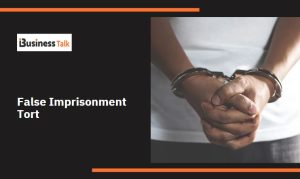
False imprisonment is an intentional tort where someone is confined without their consent. To successfully bring a tort case for false imprisonment, four elements must be proven: duty, breach of duty, causation, and injury. In England, negligent misrepresentation as a tort was previously disallowed but is now allowed in cases where a “special relationship” existed between parties.
Tort law in the UK covers many civil suits and compensates for harm caused by others. False imprisonment often comes up in cases where store security detains suspected shoplifters, and the laws surrounding it are similar to criminal statutes. If you feel falsely imprisoned, consult a no win no fee solicitor to see if you have a case.
Conclusion
To sum up, Tort Law is an essential part of the legal framework that ensures proper compensation and protection of the citizens in the UK. Understanding tort law can be a complex experience, but it is quintessential for everyone to know their rights and obligations.
Whether you are a victim of negligence, nuisance, or deceit or have to defend a case against you, it is always wise to have a basic understanding of the law of tort in the UK. We hope this guide has helped you grasp the basics of tort law.
FAQ – Tort Law
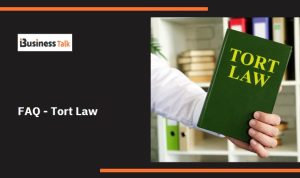
What are the 4 most common torts?
The four most common torts are negligence, defamation, trespass, and nuisance. Negligence occurs when someone fails to take reasonable care and causes harm. Defamation is the act of making false statements that damage someone’s reputation. Trespass and nuisance refer to interfering with someone’s property rights or enjoyment of their property. Understanding these torts can help recognize and protect your legal rights.
Are torts civil or criminal?
Torts are civil wrongs that result in injury or harm to another person. They are covered primarily under civil law, which seeks compensation for damages and harms through monetary compensation. Tort claims involve four elements: duty, breach of duty, causation, and injury to the plaintiff.
What makes a case a tort?
A case becomes a tort if the plaintiff can prove four elements: duty, breach of duty, causation, and injury. Tort law covers most civil suits and awards monetary damages for wrongful acts. A tort is a civil wrong resulting in legal action, most commonly seen in personal injury cases.
There are three tort actions: negligence, intentional torts, and strict liability. Tort law requires those at fault to compensate victims for harms such as loss of income and medical expenses. In short, a tort is a civil wrong giving rise to injury or harm.
Who Cannot be sued in tort?
It is important to note that tort law only applies to individuals or entities who have breached a duty of care, caused injury or harm, and are sued by the victim or plaintiff. Therefore, those who have not committed any wrongful act or breach of duty cannot be sued in tort.
Tort law aims to compensate victims for various damages, such as loss of income and medical expenses. It is private law and does not involve incarceration or fines but rather grants damages or injunctions as the appropriate remedy.
It is also important to note that tort law is not applicable in contractual disputes.
What is tort law for dummies?
Tort law is a legal system that deals with personal injuries and damages caused by wrongful actions. Tort law aims to compensate people for the harm they have suffered from someone else’s negligence, intentional wrongdoing or strict liability.
What are 3 benefits of tort law?
- Tort law provides a remedy for victims of negligence, intentional wrongdoing or strict liability.
- Tort law compensates people for medical expenses, lost income and other damages caused by someone else’s actions.
- Tort law is a powerful tool that can help hold wrongdoers accountable and protect innocent people from harm
What are 2 examples of unintentional torts?
Two examples of unintentional torts include negligence and strict liability. Negligence occurs when the defendant’s actions are unreasonably unsafe, leading to injury or harm. Strict liability torts, however, do not depend on the degree of care the defendant used. Personal injury cases, such as car accidents, are a common example of unintentional torts resulting in legal action.





